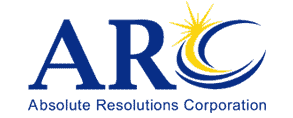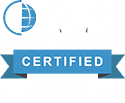As a receivables management organization, we see firsthand the importance of financial literacy. It is very common for consumers experiencing overwhelming debt burdens to lack the foundation to make informed financial decisions. Because we know the impact informed financial decisions can have on an individual’s well-being, each April we are excited to support Financial Literacy Month and encourage individuals to take control of their financial futures.
Financial literacy shapes the skills and confidence needed to make informed financial decisions and includes topics such as understanding credit scores, creating a budget, and saving for retirement. Without these skills, individuals can quickly find themselves in debt and struggling to make ends meet. Financial literacy is essential for everyone, regardless of age or income level.
One of the most fundamental components of managing your finances is to create a budget. A budget is a plan for how you will spend your money, and it helps to ensure that you have enough money to cover all your expenses. When creating a budget, start by tracking your income and expenses, then categorize your expenses and prioritize your needs versus wants. You can then use this information to set realistic goals for saving, investing, and paying off debt.
Another essential tip for managing your finances is to stay organized. In addition to helping you stay on top of your bills, avoid late fees, and missed payments – staying organized can also help you maintain a healthy credit score. By keeping track of your balances and paying your bills on time, you can ensure that your credit score remains accurate and positive. Additionally, regularly reviewing your free annual credit report for errors or fraudulent activity can help you maintain a healthy credit score.
It can be overwhelming to know where to start, however, improving your financial literacy is not something anyone has to do alone. There are many accessible resources available, such as financial advisors, books, and online courses. There are also many free resources available, such as nonprofits and government websites that provide financial literacy education and tools.
Free Resources:
- Get your financial well-being score – Find out your financial well-being | Consumer Financial Protection Bureau (consumerfinance.gov)
- CFPB Consumer Resources – Consumer Resources | Consumer Financial Protection Bureau (consumerfinance.gov)
- CFPB Educator Tools – Resources for Financial Practitioners, Educators & Professionals | Consumer Financial Protection Bureau (consumerfinance.gov)
- MyMoney Five – Home | MyMoney.gov
- Get a copy of your free credit report – Annual Credit Report.com – Home Page
Financial Literacy Month is an excellent opportunity for individuals to take control of their financial futures by expanding their knowledge and improving their skills. By creating a budget, staying organized, and utilizing resources, individuals can avoid debt and make informed financial decisions. Let’s work together to increase financial literacy and improve the financial well-being of our communities.


